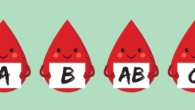
10 Early Dementia Symptoms You Can't Ignore
0
If you regularly forget the right word or if you feel that you have become too suspicious, this is a reason to visit a doctor.
Dementia is often confused with memory loss. But forgetfulness, even in the clinical stage, is only one of the symptoms of senile dementia. Not only that, but not mandatory.
In dementia, brain cells are damaged or destroyed. And at first in different parts of it. For some, the areas related to the storage of memories really suffer. Otherwise, behavioral functions are revealed under impact. In the third, cellular destruction affects the speed of thinking, the ability to speak or navigate in space.
The further the disease progresses, the more areas of the brain it affects. And it doesn't stop until it completely erases a person's personality.
About 50 million people around the world suffer from senile dementia today. Every year, 10 million more are added to this number.
There are many types of dementia – from the well-known Alzheimer's disease to various vascular disorders. The bad news is that there is no cure. But there is also a good one: the development of dementia can be stopped, and some of its symptoms can be smoothed out almost to the point of complete disappearance. The main thing is to notice it in time.
What are the early symptoms of dementia
1. Difficulty finding the right word
“It's rolling off the tongue, but I can't remember!” – almost everyone has been in such situations, even a young and completely healthy person. But it is one thing if these cases are one-time or infrequent, and quite another if they begin to repeat themselves day after day. Deterioration of the ability to choose words is one of the earliest and most striking signs of advancing dementia.
2. Forgetfulness has become more frequent
It's normal to forget where your keys or phone are from time to time. But if a person begins to regularly lose things, cannot remember what he ate for breakfast or what he talked about yesterday with a colleague, this indicates cognitive disorders that are developing.
3. Anxiety, incredulity
Naive optimism is a characteristic of youth. With age, we all become a bit cynical, pessimistic and stop believing in pink ponies. This is normal. It is bad if yesterday a cheerful person suddenly begins to distrust people and the world, to look for a trick in everything. “Good discount? The product is probably expired!”, “Did the neighbor treat you to a pie? He probably wants to poison me!”, “Did you offer to take on a new project? Only because all normal people gave up on him!”
Such anxiety and mistrust, especially if they manifested themselves in a rather sharp manner, is also a bad symptom.
4. Constant mood swings, depression
Damage to brain cells can affect the production of important hormones, including those that regulate mood. Depression was observed in many patients with dementia at the very initial stage of the disease.
5. Personality changes
It does not matter in which direction they occur. Maybe yesterday's cheerful extrovert suddenly became grumpy. Or, on the contrary, recently a shy person suddenly turned into an overly sociable one. Any changes in character, temperament, and communication skills are an alarming signal.
6. Disorientation in time and space
Regularly can't remember what date or day of the week it is today? Or suddenly discovered that you forgot a short way to the bus stop, do not understand where the door to the right office is, although you have been there more than once? Somewhere your brain fails. It is worth finding out where. And isn't it dangerous.
7. Loss of interest in hobbies
Apathy, reduced interest in activities you have enjoyed for years (be it sports, collecting, beadwork), attempts to avoid communication – even with close friends – another symptom is creeping in dementia.
8. Aimlessness
A person takes a bag and goes, as it were, to a store, but returns without purchases. Sometimes, he wanders around the house or office here and there without a visible goal. Again and again he asks the same questions, although he has already received an answer to them. Such behavioral difficulties indicate a loss of the ability to plan and concentrate. Which is also a bad sign.
9. Loss of ability to follow the logic of conversation or verbosity
Disturbances in the work of the brain do not allow a person to focus on the topic of conversation. He is constantly tripping over extraneous things. For example, in a conversation about the benefits of apples, one may suddenly come across memories that are practically unrelated to the main plot: “Oh, what delicious apples I ate in the village at my great-grandmother's house! She had a huge garden. And her grandfather built a house for her, everyone would like such husbands!”
Due to the ability to formulate thoughts clearly and concisely, which is lost, a person has to engage in extensive reasoning. And in the process, she often forgets what she actually wanted to say.
10. Tendency to constantly transfer, hide, accumulate items
Hide glasses so they don't get lost, and then spend half a day painfully looking for them around the house. Refusing to throw out old appliances or broken furniture – “and suddenly it will come in handy.” With progressive dementia, such incidents become more and more pronounced and regular.
What to do if you notice early symptoms of dementia
The ideal option is to remember (preferably even write down) all the signs that worry you and contact a therapist or neurologist. The doctor will listen to you, ask about your lifestyle, take a look at your personal card, and maybe offer to undergo some tests. For example, pass urine and blood tests: for sugar level, thyroid hormones. A cardiogram or brain MRI may be required.
The fact is that the state of the brain is affected by various factors: endocrine disorders, metabolic disorders, anemia, vitamin deficiency, blood supply disorders, and side effects from medication. Before talking about the prospects of dementia, the doctor must rule out these conditions.
If your suspicions are confirmed, the specialist will tell you what to do. If necessary, he will prescribe drugs that can support brain cells and protect them from damage.
In addition, you will need to adjust your lifestyle. By the way, these same measures are an effective prevention of dementia.
1. Move more
Physical activity provides good blood supply to the brain and helps it recover. Walk more, ride a bike and try to devote at least 150 minutes to training a week.
2. Communicate
Even through reluctance. Social activity is as necessary for the brain as air. It helps him keep his youth and health longer.
3. Train your brain
Read, solve puzzles and crosswords, learn Chinese, follow the news, try to learn something new every day.
4. Quit smoking
There is evidence that nicotine can increase the risk of dementia and vascular diseases of the brain. This especially applies to those who continue to smoke after the age of 45.
5. Get enough sleep
Ensure yourself at least 7-8 hours of quality sleep per day. Be sure to seek the advice and help of a therapist if you have insomnia, snoring, or suspected cases of apnea.
6. Watch your diet
For brain health, a diet high in vegetables, fruits, fish, nuts, and olive oil is best. The ideal Mediterranean diet.
7. Avoid Vitamin D deficiency
Some studies show that people with low levels of vitamin D in their blood are more likely to develop Alzheimer's disease and other forms of dementia. Also, specialists of the American research organization Mayo Clinic recommend carefully monitoring the level of consumption of vitamins of group B and C.









Leave a Reply